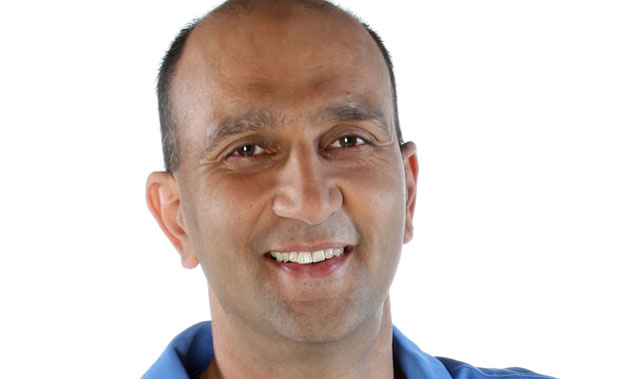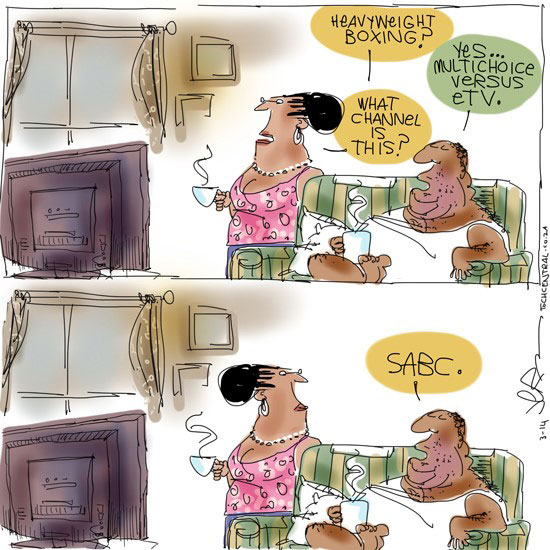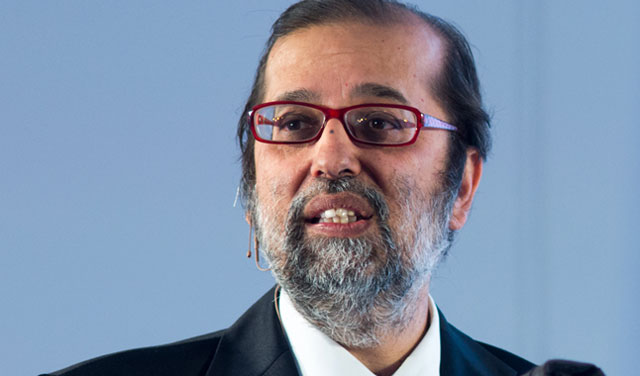
MultiChoice’s open letter to Yunus Carrim, in which it criticised government’s policy on the use of encryption in free-to-air digital terrestrial television, was “not anti-government” and was written because the pay-TV broadcaster, which owns M-Net and DStv, has “a serious concern” that the policy will harm consumers’ interests.
That’s the claim by MultiChoice South Africa Group CEO Imtiaz Patel, who says the letter, which was also signed by two industry associations, was penned because “we believe that to have a vibrant democracy, it’s important to be robust about these things”.
“It’s nothing personal and nothing against a particular individual. What it is, is in the interests of the country, ultimately,” Patel says.
However, the letter, which was published in three Sunday newspapers, and which accused Carrim of pandering to “certain narrow commercial interests” (read: free-to-air broadcaster e.tv) raised the hackles of the minister, who labelled MultiChoice a bullying monopoly and said the letter had served to “substantially weaken the case of those opposed to the government’s policy”.
MultiChoice and e.tv are engaged in a high-stakes war over whether the set-top boxes that consumers will need to watch digital television when the country switches off analogue broadcasts should contain a control system based on encryption technology. The two companies appear unwilling to give any ground at all, leaving Carrim in the invidious position of having to make a decision that will almost certainly result in a protracted court battle, possibly delaying the already long-delayed roll-out of digital television.
When asked by TechCentral whether he thinks it is wise for MultiChoice to take on a cabinet minister in such a public way, Patel says simply: “This is not against government. We have a strong relationship. We would like to think we are a company that is empowered with black shareholders. We have created more than a thousand jobs in two years, in an economy that is shedding jobs, and we invest R7bn in procurement, R2bn in taxes and 85% of our workforce is black. We are aligned with government objectives.”

Patel denies that the broadcaster is fighting encryption for its own narrow commercial interests, saying encryption in the set-top boxes is “simply wrong” for South Africa. “The purpose of migration is to free up the dividend,” Patel says of the radio frequency spectrum that will be made available to broadband operators when broadcasters switch off their analogue systems. “We have to do it as cleanly, neatly and as cheaply as possible.”
However, Patel again accused Carrim of “serving narrow interests” by wanting to use encryption to “enable a competitor” in e.tv.
“A free-to-air signal is a free-to-air signal, which means it’s meant to be available for free to every citizen in this country via a free-to-air platform,” he continues. “If I’m a free-to-air operator, I should want it available as widely as possible for more advertising revenue as the result of reaching more eyeballs.”
But, why, when MultiChoice has been engaged in a facilitation process led by Carrim since the beginning of the year, did the company decide to ratchet things up now by appealing to the public to oppose government policy on the matter?
“We have taken part in various facilitation processes,” says Patel. “The problem is that it seems that the process is only successful if one party gets its way.”
If encryption is used, South Africans will be locked in to a standard used nowhere else in the world, he says. “What we are effectively saying, then, is we prefer being an island and locking our consumers in, and consumers pay forever and a day to serve narrow interests.”
He says using encryption in set-top boxes will require complex and expensive backend systems, including call centres, which poor consumers won’t be able to afford to call when they have a problem. Instead of helping the poor, encryption will “harm” them, he says.
Patel adds that if government wants to help create black industrialists in electronics manufacturing, it should do this through its tender for the set-top boxes it intends subsidising for the poor, not by mandating the use of encryption technology. Set-top box control also won’t prevent the market from being flooded by cheap and nasty Chinese-made imports, he says. “A Chinese company can use the same control system; you can’t stop it. It’s a flawed argument.”

MultiChoice South Africa Group head of stakeholder and regulatory affairs Calvo Mawela says the way to stop cheap and nasty imports from flooding the country, as happened in Mauritius and elsewhere, is to create a standard against which all set-top boxes are tested for compliance.
“You then create a conformance regime and get the stamps of approval, and create a public awareness campaign to say this is coming, and this is how we will identify if the product will function appropriately. Customs officials need to go through a training process to check when the goods come into the country whether they comply with the standards of South Africa or not.”
Mawela says the migration process is “complex”, even for developed countries that have far more resources available than South Africa. “With our limited resources, we are taking the hardest route that anyone has taken,” he says, adding that this will create “big problems” down the line.
Mawela also disputes Carrim’s claim that if encryption is dropped as government policy that a full review of a South African Bureau of Standards (SABS) set-top box standard will be required.
“Dropping set-top box control would require only an amendment, and we have already started that process at the SABS. We’re just waiting for the minister to finalise the policy. Immediately thereafter, we will call a meeting, and there will be a 30-day comment period [before the standard is finalised]. People are viewing it as a new work agenda item, but all the ducks are already in a row. We are not doing a [full] review of the standard.” — (c) 2014 NewsCentral Media




